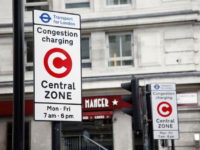Guest post by Megan Trainer
London: an increasingly vibrant city, uniquely diverse in nature and unlike anywhere else in the UK. With a host of quaint lifestyle shops, vast outdoor spaces and home to some of the country’s leading fitness experts, you’d be forgiven for thinking staying healthy in London is easier than anywhere else in the UK purely because of access.
Well, that’s not really the case. There might be better access to key health experts, but there are also higher levels of air pollution, too. London has a long history of air pollution. With a growing amount of evidence suggesting that high air pollution could impact the fatality rates of COVID-19, being worried about air quality in the capital is a valid concern.
Air Quality in London
Sidiq Khan’s congestion charges have helped to bring levels in London down considerably in the last four years, but there’s still a long way to go. Most people in London make good use of the extensive public transport network, but there’s still a huge portion of dirty diesel’s and polluting petrol’s on London’s roads.
The good news is, air pollution has dropped considerably since 2016, but in many areas of London, the levels of NO2 still exceed the legal limit and pose a risk to health. In 2015, over 9,000 Londoners died as a result of the poor air quality in the city.
How Air Pollution Affects Health
Cars produce nitrogen dioxide. In 2017, NO2 was attributed to over 60,000 cases of disease. It can contribute to asthma and lung disease, as well as lung cancer, diabetes and heart failure. All of these issues pose their own problems, but they can also mean that the risk of fatality from COVID-19 is increased – as it is with anyone who has an underlying health condition.
COVID-19 attacks the respiratory system and inflames the lungs, so if your lungs have already been compromised from diseases caused by air pollution, you’re more likely to suffer worse symptoms of COVID-19 if you catch it. That’s according to studies conducted in the USA, Italy and the Netherlands, the latter of which recorded people living in heavily polluted areas were 16% more likely to die from COVID-19.
In the simplest terms, if you live in an area like London with high levels of air pollution, you’re more likely to develop health issues such as asthma. When you suffer with asthma, your lungs and airways become inflamed. Paired with COVID-19 which also inflames the lungs and airways, this could easily prove to be fatal.
Who’s Most at Risk?
We know COVID-19 is more likely to affect adults instead of children, but that’s not the case with the effects of pollution.
Air quality impacts everyone’s health and can compromise the immune system of people in all age groups – from babies in the womb all the way to elderly people.
At a time when your health is your wealth, it’s more important than ever to keep a close eye on your lifestyle choices and to make sure your decisions don’t impact those around you.
In the UK, we have the luxury of the NHS and access to its network of community support and at home care. It’s reassuring to have such a generous safety net should the worst happen, but the onus is on us to preserve the NHS by making positive lifestyle changes – especially during COVID-19.
For the benefit of everyone – especially the clinically vulnerable – ditching the car and taking the bus or investing in a cleaner vehicle is preferable. Of course, this isn’t a viable option for lots of people, but sharing a car to work or using public transport where possible is a small change most people can make. Plus, it’s more cost-effective than running your own vehicle.
Reducing harmful emissions and our carbon footprint is essential in preserving the health of Londoners, more so than ever in a respiratory pandemic.





